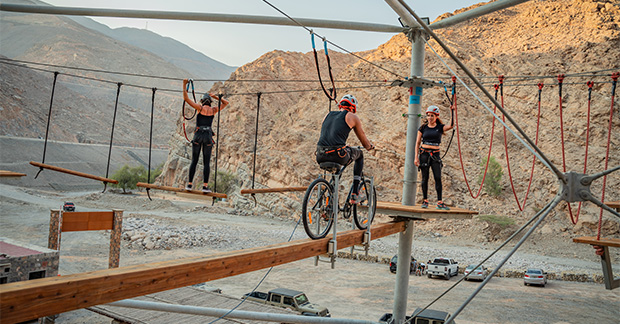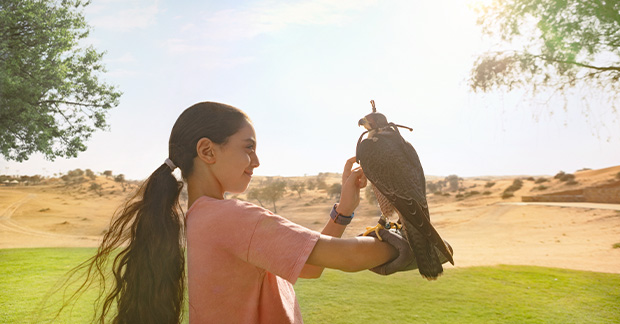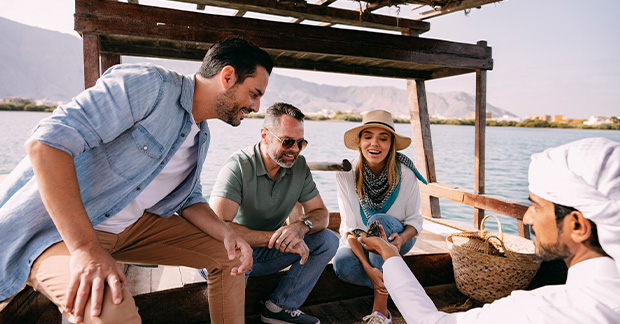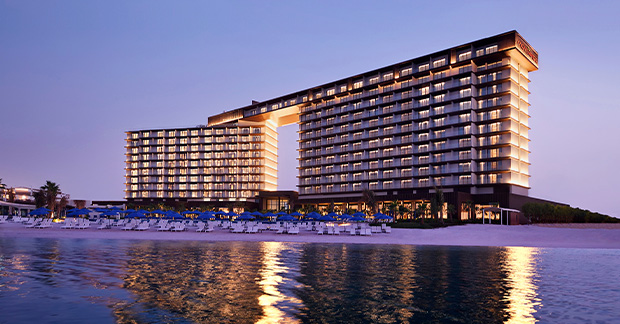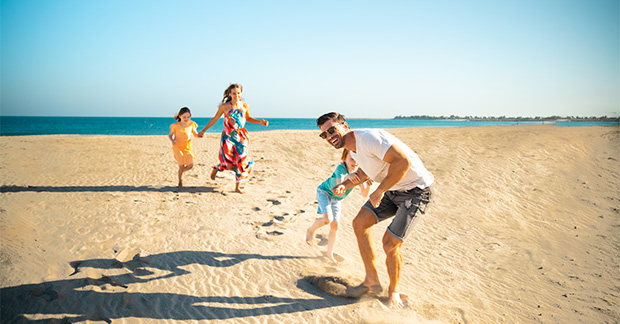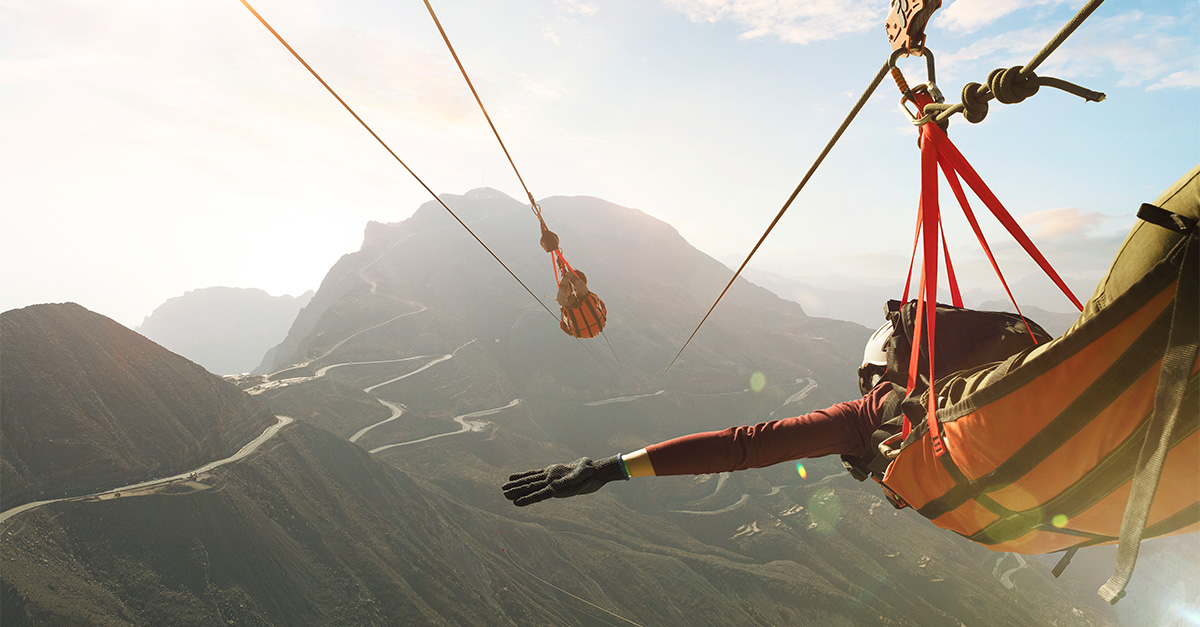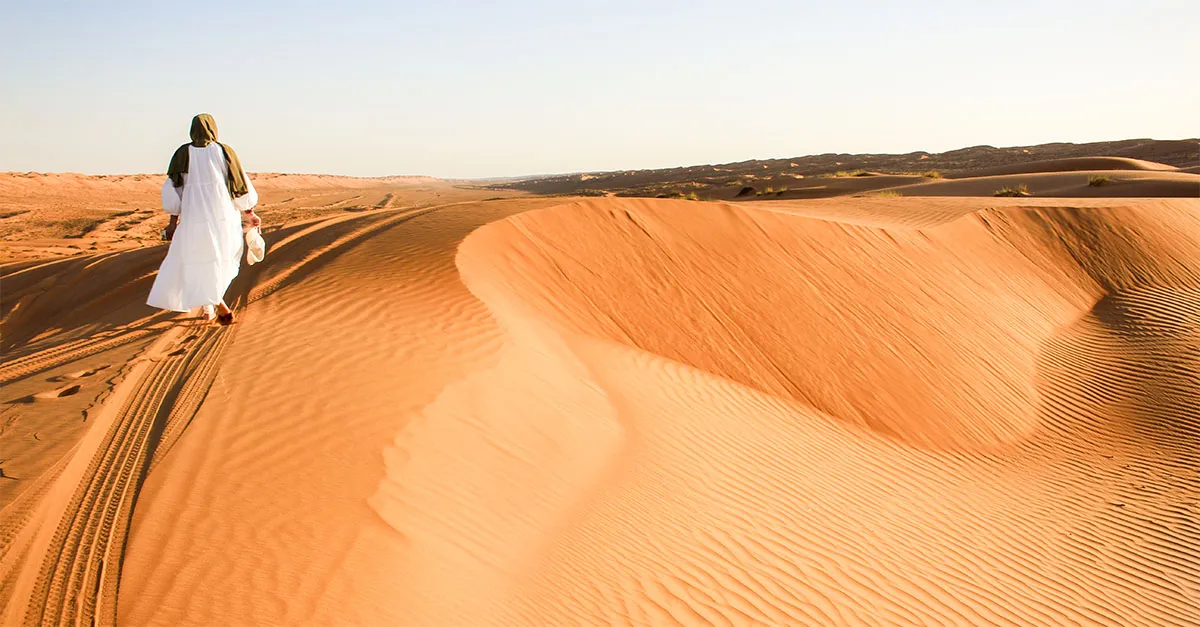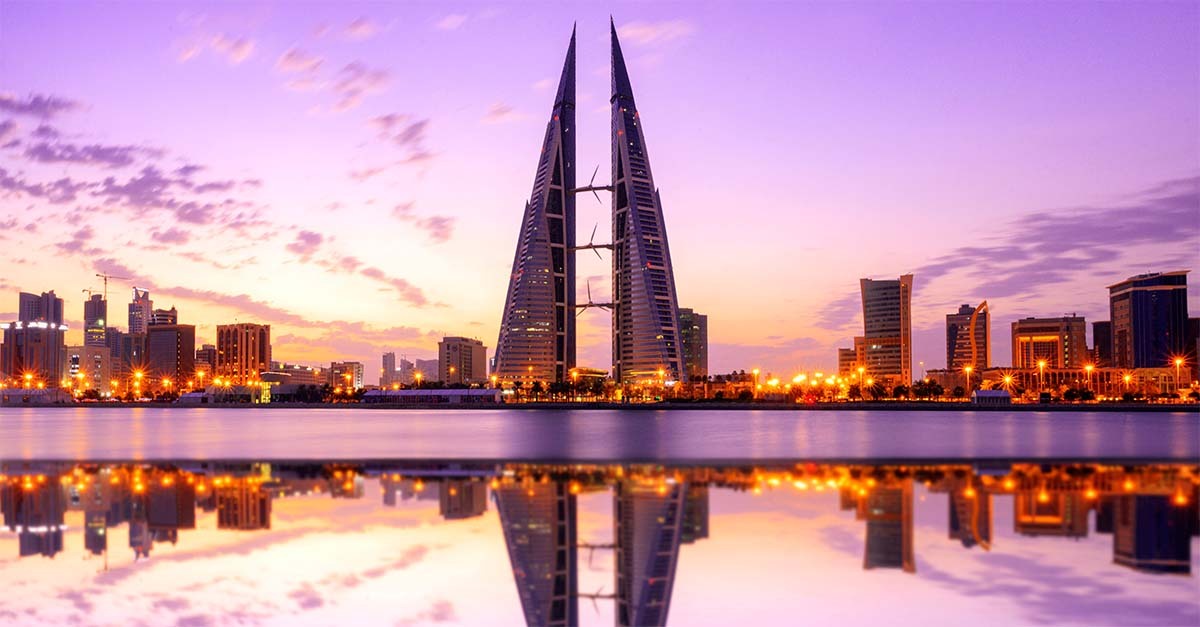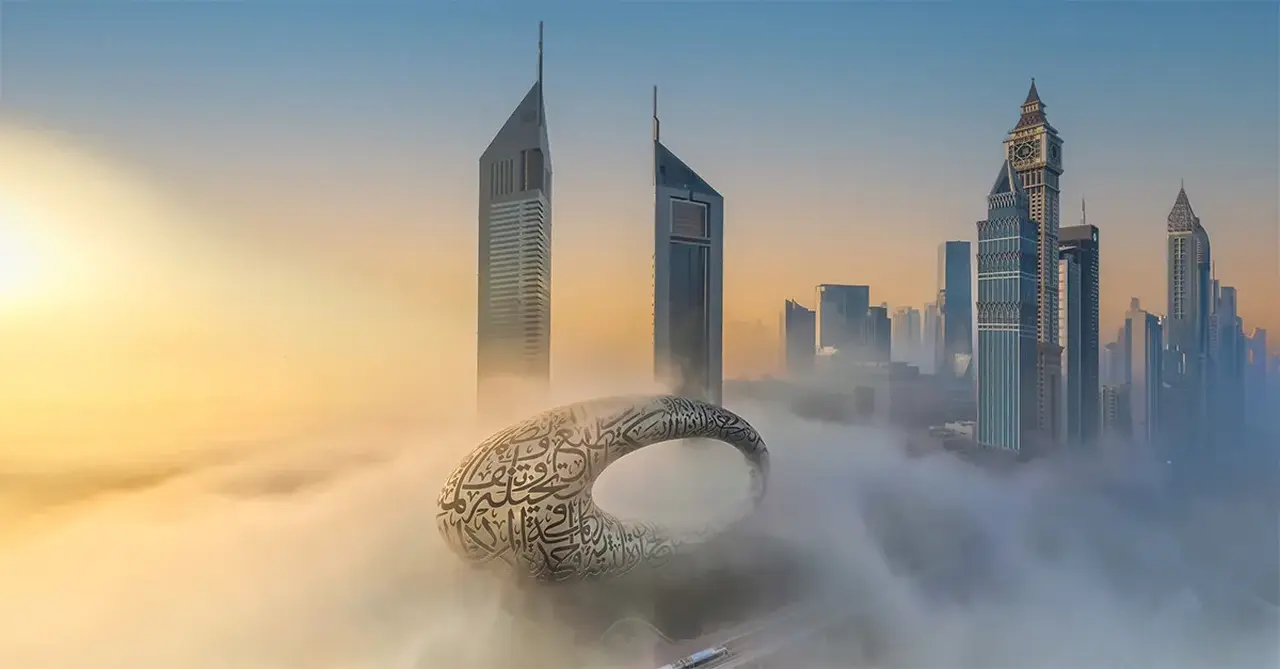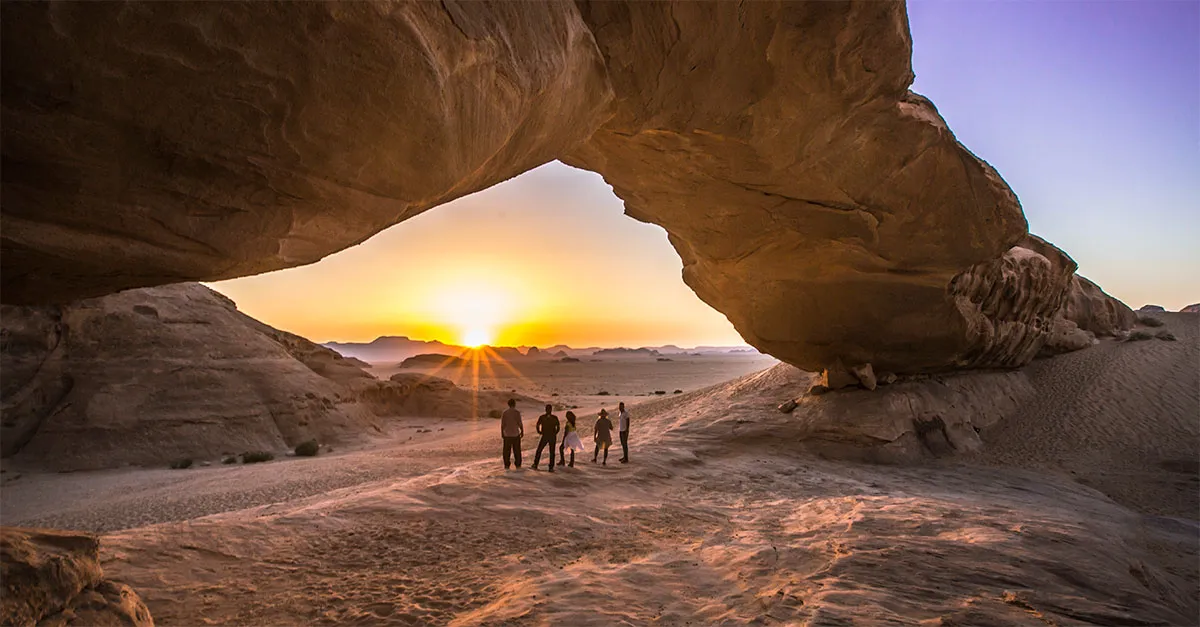You are viewing 1 of your 2 free articles
How to run wild in Ras Al Khaimah
Seek out a different side of the UAE in Ras Al Khaimah, where nature and adventure are in abundance, finds Adam Shaw
Click here to download and save as a PDF
When the longest zipline in the world, Jais Flight, opened five years ago, it put tiny Ras Al Khaimah on the map. Yet despite the zipline’s record-breaking reach, this emirate isn’t about chasing the biggest, brightest and buzziest attractions – unless you count its natural assets, that is.
Set on the northern tip of the Arabian Peninsula, a 45-minute drive from Dubai, the emphasis here is on nature, culture and adventure. That’s not to say RAK (as it’s often shortened to) is taking things slowly. It’s targeting three million visitors a year by 2030, and new hotels, restaurants and activities are springing up.
A flagship Nobu hotel with a restaurant and 300 residences is set to open on Al Marjan island in 2027, joining the likes of Mövenpick, Rixos, Radisson and Hilton.
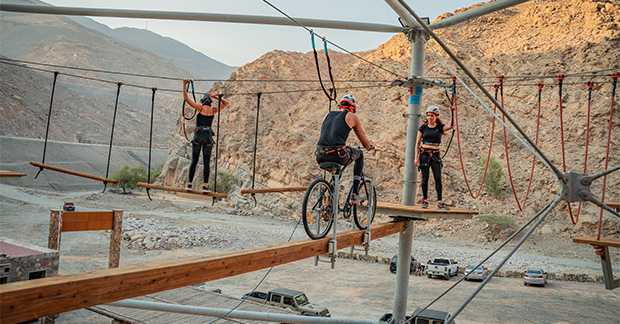
World's longest zipline
“If you want to go to Dubai or Abu Dhabi, you can; we are not far away,” says the Ras Al Khaimah Tourism Development Authority. “But we are more about escaping the crowds and embracing nature.
We are the only place [in the UAE] where you can experience the sea, the desert and the mountains.” The Hajar Mountains are an ever-present backdrop, especially as we follow the winding mountain road to the adventure park, where the zipline is based.
At 1.75 miles long, 1,680 metres above sea level and capable of reaching 100mph, it’s a thrilling two-minute ride over the valleys. Further attractions have been added since 2018, including a toboggan ride (arguably more heart-pounding than the zipline), hiking trails and a Bear Grylls survival camp.
For something gentler, try 1484 by Puro, the highest restaurant in the UAE, with an Asian-inspired menu, local takes on classic cocktails (think date martinis and lemongrass mojitos), plus stunning views of the mountains – and those ziplining between them.
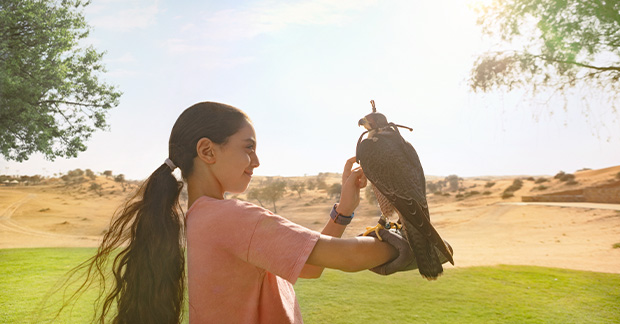
Hot air balloon
The peaks make another appearance as we soar over the dunes in the basket of a hot-air balloon. “If you look to your right, you’ll see the outline of the Hajar Mountains,” says our pilot, Kevin Pilgrim of local operator Action Flight, before releasing another blast of fiery gas.
He points out Al Marjan and The Ritz-Carlton’s nature reserve, and after an hour peacefully floating across the expanse of desert below, we come to a smooth stop on the sand. “Up on that hill, you’ll see a group of camels have come to say ‘hello’,” quips Kevin. Nature, it seems, is never far away in RAK.
Pearl diving
While thrill-seeking activities are part of the appeal, there’s also a cultural legacy to discover. Before oil was discovered, the pearl trade was a prime source of income, and some of the world’s most-prized pearls were discovered here. Nowadays, those roots are championed by Abdulla Al Suwaidi, a charismatic pearl diver who runs Suwaidi Pearls – a shop, educational centre and pearl farm near state capital RAK City.
Guests can take a trip on a traditional dhow boat through mangroves and past flocks of flamingos to a pontoon where they learn about the global history of pearls, how farming methods have developed and how oysters are crucial for the environment. “Strong ethics and community work have led to this industry surviving for so long,” Abdulla tells us, after demonstrating the traditional diving technique that uses nothing more than rocks, rope and a turtleshell nose clip.
“We believe the pearl can be the gem of the future. But we also need to change our attitudes, as we are destroying our oceans. We need oysters, because they were created to help the environment – they clean the water.”
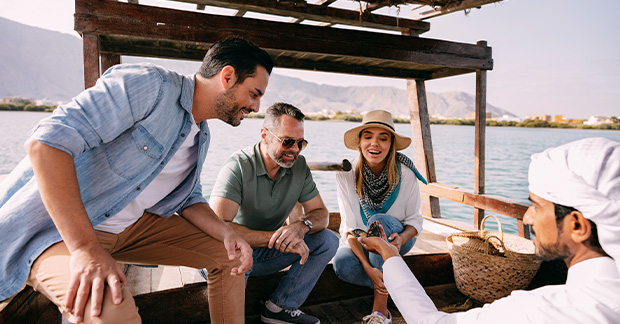
Game drives
Oysters aren’t the only species to be seen here. The Ritz-Carlton Ras Al Khaimah, Al Wadi Desert, organises game drives from its wildlife reserve to spot oryx, antelopes, camels and lizards.
There are also falconry demonstrations, where expert handlers explain the role of these majestic birds in Emirati culture – nomadic people have used them to hunt for centuries – and how birds of prey are important in maintaining the balance of the region’s ecosystems.
That concept of balance runs through Ras Al Khaimah – whether lazing on a white-sand beach, looking at the ocean after learning about its pearly riches, hiking in the mountains or settling down with a well-earned drink after hurtling Superman-style through the sky.
Tried & Tested
Mövenpick Resort, Al Marjan Island
The Mövenpick has plenty of standout features – 300 metres of white-sand beach, the only rooftop bar in RAK, a chocolate fountain and, during Ramadan, a nightly iftar buffet (fast-breaking meal) accompanied by traditional music. There are 305 standard rooms with sea or pool views, 78 family rooms sleeping up to four, 21 suites and 14 beachside chalets with private pools.
Dining options include the Beach House (Tex-Mex cuisine), Ula (Mediterranean), Boons (brasserie) and The Market buffet restaurant. For families, there is a kids’ club and a range of watersports (charges apply). RAK City is a 30-minute drive, while central Dubai is just over an hour away.
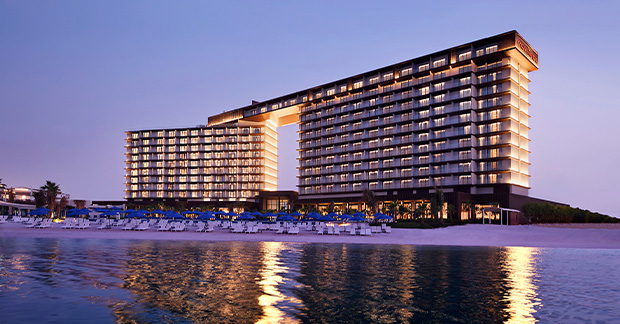
Book it
Gold Medal offers seven nights’ half-board in a Deluxe Island Sea View Room at the Mövenpick Resort Al Marjan Island from £1,239 per person. The price includes Emirates flights from Stansted to Dubai, flying on January 16, 2024.
goldmedal.co.uk
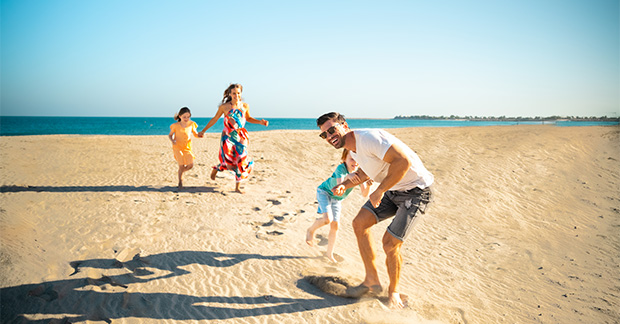
PICTURES: Nicolas Dumont
Read more
2 new ways to see ancient Athens and Petra
Tips on how to sell women-led tours
Palm Jumeirah: New hotels, brunches and hot-air balloon rides

